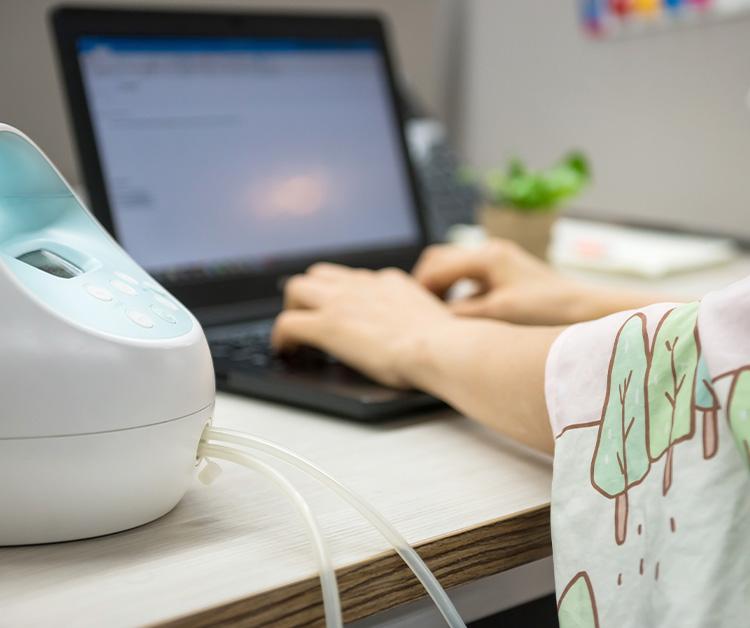
These days, most American moms of little kids are working moms. And every one of them had to decide how to feed their baby while being away. You and your baby have lots of good options as long as you're prepared. Here are some helpful tips for breast pumping at work.
The best way to ensure an adequate milk supply is by breastfeeding exclusively for at least the first four to six weeks. Ideally, you'd have on-site childcare at your company, so you can breastfeed your baby during the day. Unfortunately, this is a rare situation to have at the workplace.
Based on your milk supply, pumping opportunities and energy levels, you may decide to supplement your breast milk with infant formula. Most women do. If you've been breastfeeding and intend to bottle-feed, introduce your baby to the bottle after breastfeeding has been established, several weeks before you go back to work. At first, try a bottle of formula at the feeding time your baby is least interested in, to ease the transition. Set a feeding schedule before you go back, so you're both comfortable with it.
Being a working mom is two hard jobs in one. For this reason among others, many women decide that bottle-feeding is the way to go and avoid breast pumping at work. You can feel confident in choosing a newborn or infant formula that is closest to breast milk, with all the nutrients your baby needs to support their health and development during the first year. If you intend to wean to bottle-feeding, do it gradually. Try one bottle of formula, or formula mixed with breast milk, at one feeding time per day until your baby gets used to it.
Breast pumping at work takes a little getting used to, but these tips will make the transition easier. Get other helpful tips for returning to work as new mom.
All information on Enfamil, including but not limited to information about health, medical conditions, and nutrition, is intended for your general knowledge and is not a substitute for a healthcare professional's medical identification, advice, or management for specific medical conditions. You should seek medical care and consult your doctor or pediatrician for any specific health or nutrition issues. Never disregard professional medical advice or delay seeking medical treatment, care, or help because of information you have read on Enfamil.